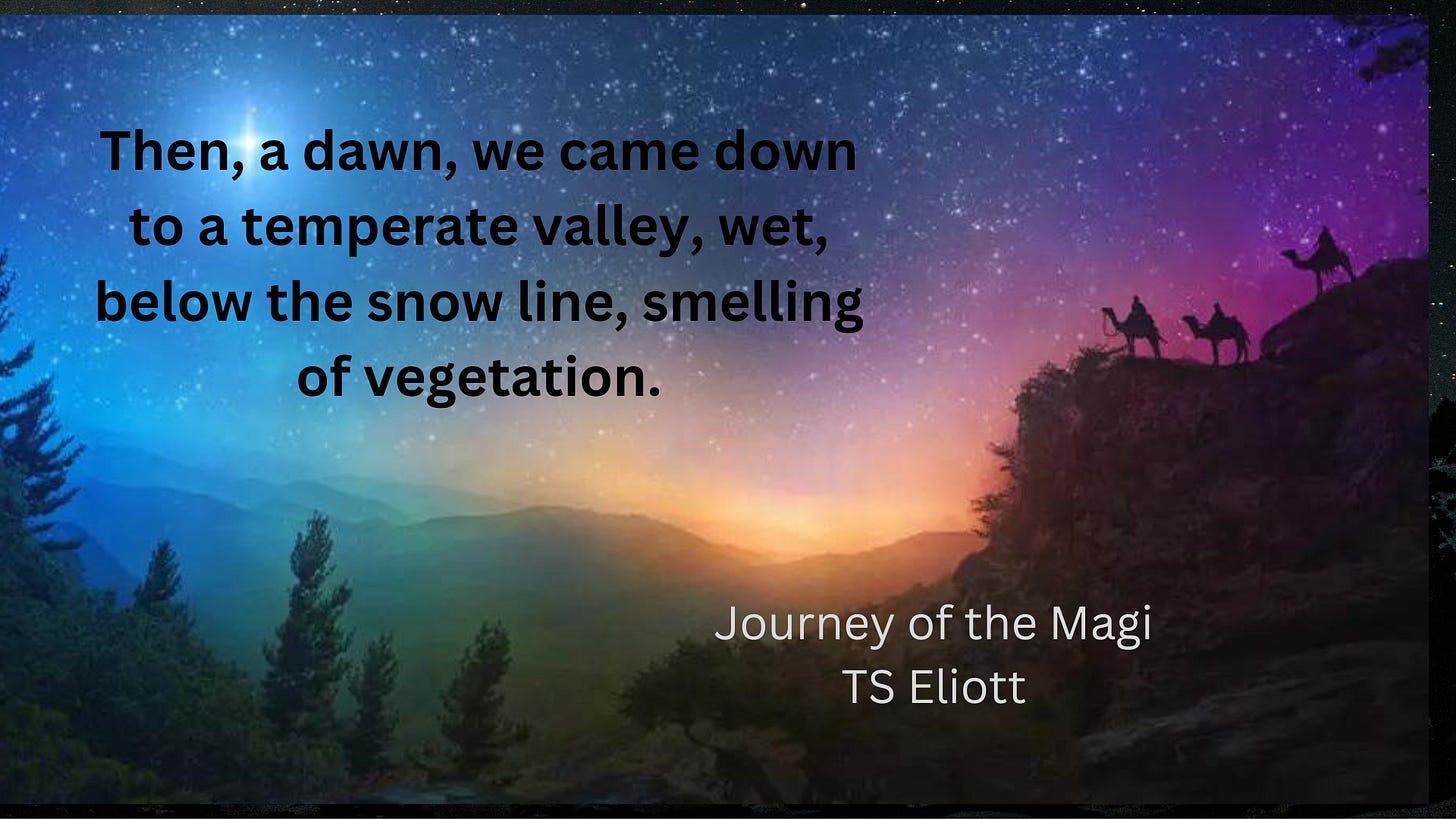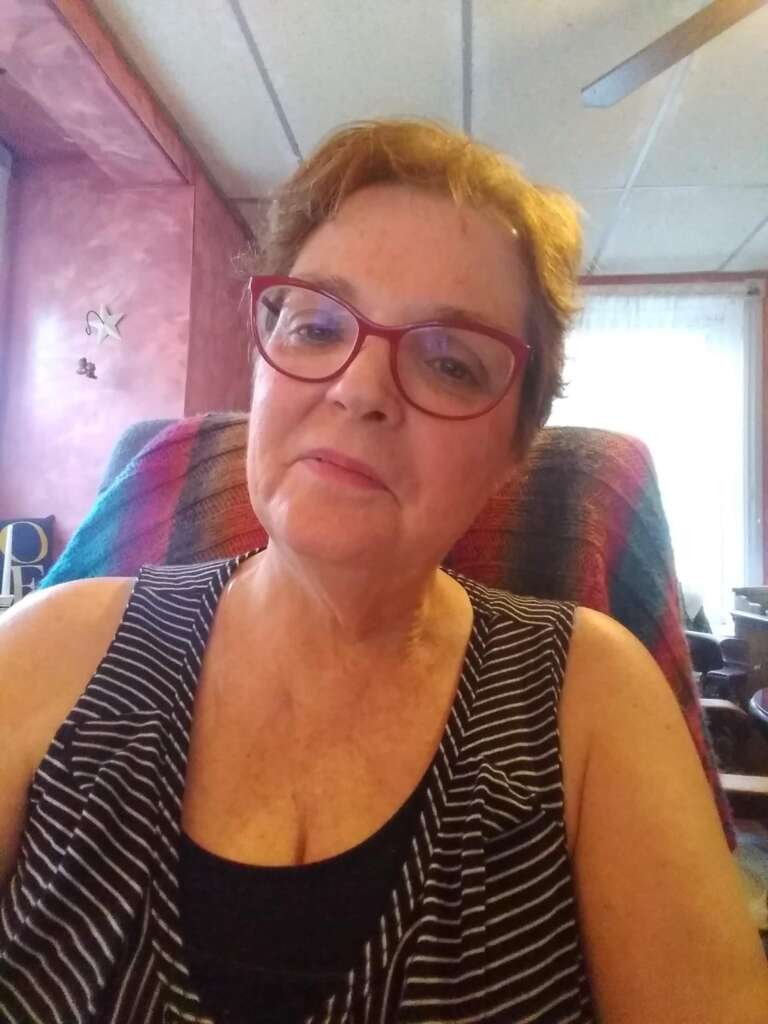Then, at dawn, we came down to a temperate valley, wet, below the snow line, smelling of vegetables.
The second stanza of the poem brings us, at last, out of the hardships and desperations and into a place of hope. The climate in the valley is mild, a contrast to the wintry weather that marked much of the Magi’s journey. There is green growth here, reminiscent of the Garden of Eden. This is a place where the weary Magi can rest a bit before pressing on, confident that they are nearing the end.
As in his poem, “The Waste Land,” Eliot’s Magi long for the breath of life. Throughout the wasteland of his marriage to Vivienne, Eliot turned from worldly ambition and the use of his gift for fame to service of truth and beauty. His guilt at abandoning the mentally unstable Vivienne wracked him for years and he turned to prayer and poetry.
During those difficult and exhausting years of Ron’s illness, I looked for what I called “pockets of peace”: a day Ron had no surgery, a meal I actually ate at the table with the family, or a chance to watch the sunset from our own back deck. Each small moment gave me hope to keep pressing on.
REFLECTION:
In one of your own difficult journeys, what gave you hope and kept you moving forward?

